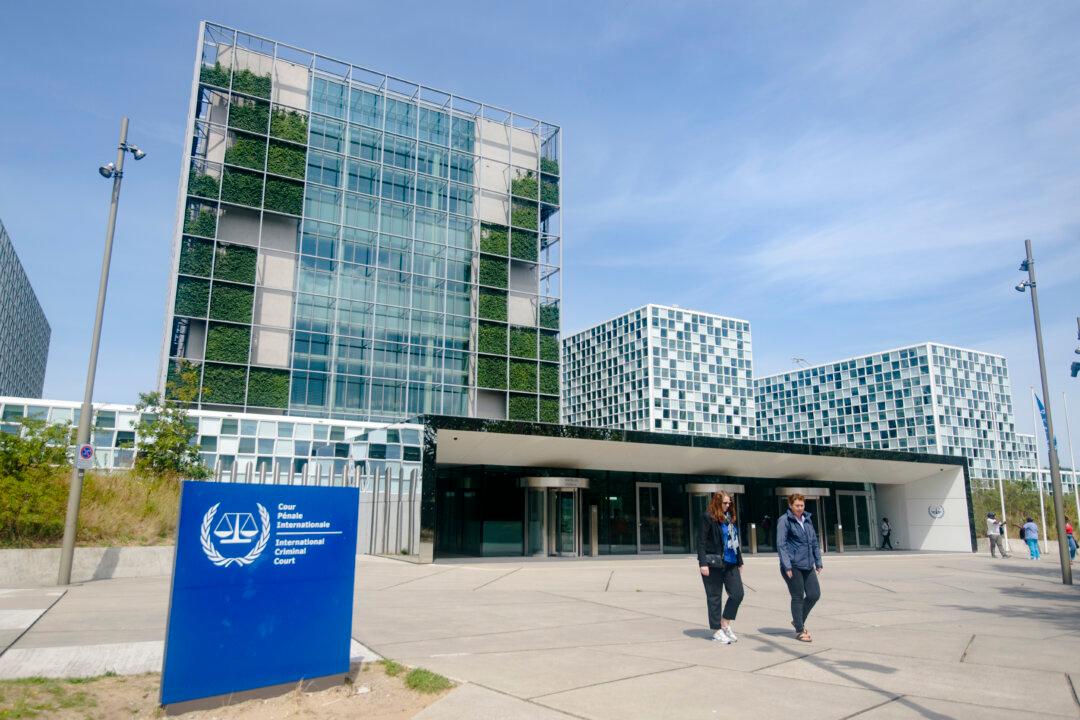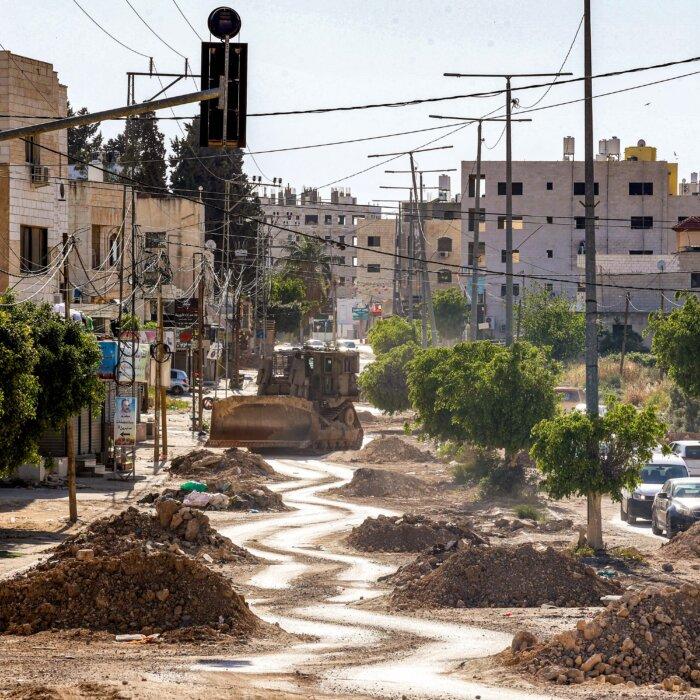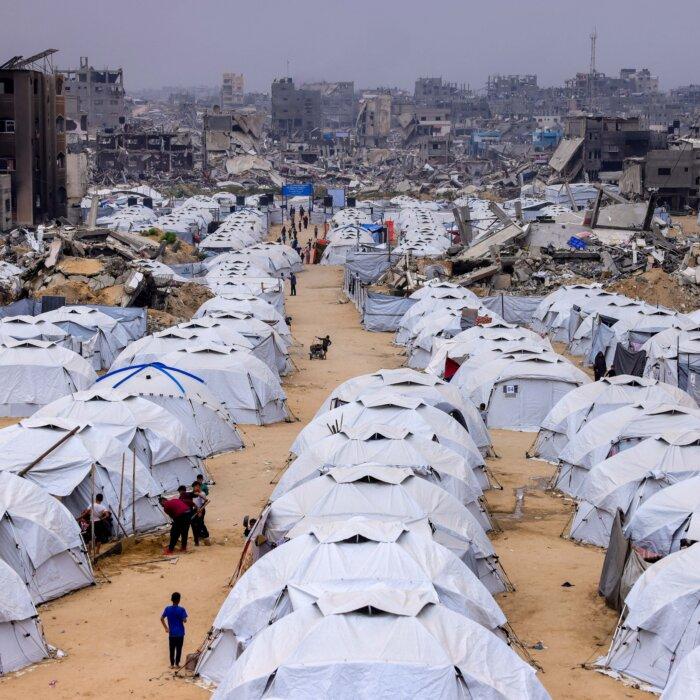Israel is facing allegations of breaking international law by refusing to allow aid into the Gaza Strip at the International Court of Justice (ICJ) during a week of hearings beginning in The Hague, Netherlands, on April 28.
Dozens of nations are set to present arguments as the case gets underway in the Netherlands.
Israel cut off supplies to the 2.3 million residents of the Palestinian enclave on March 2, and food stockpiled during a cease-fire at the start of the year has allegedly almost run out.
In a December 2024 resolution sponsored by Norway, the U.N. General Assembly requested an advisory opinion—a nonbinding but legally important decision from the court—on Israel’s obligations in the occupied territories to “ensure and facilitate the unhindered provision of urgently needed supplies essential to the survival of the Palestinian civilian population.”
After the hearings, the court will likely take several months to form its opinion.
Advisory opinions of the ICJ carry legal and political weight, although they are not binding and the court has no power to enforce them.
Israel has said it would not allow the entry of goods and supplies into the Gaza Strip until the terrorist group Hamas releases all remaining hostages.
Germany, France, and the UK last week called on Israel to adhere to international law by allowing the unhindered passage of humanitarian aid into the Gaza Strip, after Israel reiterated that no aid would be allowed in order to pressure Hamas.
U.S. President Donald Trump said on April 25 that he had pushed Israeli Prime Minister Benjamin Netanyahu to allow food and medicine into the strip.
Israel has repeatedly accused Hamas of hijacking humanitarian aid that was allowed into the Gaza Strip.
Hamas has denied the allegations and has blamed Israel for shortages.
The resolution adopted in December by 137 of the 193 nations in the U.N. General Assembly called on Israel to comply with its obligations toward the Palestinian population and expressed “grave concern” about the dire humanitarian situation.
Israel, the United States, and 10 other countries voted against the resolution, while 22 nations abstained.
The United Nations (U.N.) will be the first to address the court on April 28, followed by Palestinian representatives.
In total, 40 states and four international organizations are scheduled to participate, with Israel not among them.
Ammar Hijazi, Palestinian ambassador to the Netherlands, has accused Israel of breaching international law in the occupied territories.
“Israel is starving, killing and displacing Palestinians while also targeting and blocking humanitarian organizations trying to save their lives,” he told the court.
The five days of hearings are scheduled to run until May 2, with the United States slated to give its opinion on April 30.
Israel’s foreign minister said on April 28 that the ICJ hearing was part of a “systematic persecution and delegitimization” of his country.
In a live briefing, Israeli Foreign Minister Gideon Saar said the court was “becoming completely politicized” and labelled the proceeding “shameful.”
“I accuse [the United Nations Relief and Works Agency for Palestine Refugees in the Near East], I accuse the U.N., I accuse the secretary-general, and I accuse all those that weaponized international law and its institutions in order to deprive the most attacked country in the world, Israel, of its most basic right to defend itself,” Saar said at a news conference in Jerusalem.
The U.N. views the Gaza Strip and the West Bank as Israeli-occupied territory, and international humanitarian law requires an occupying power to facilitate relief programs and ensure food, medical care, hygiene, and public health standards.
On Oct. 7, 2023, more than 3,000 Hamas terrorists attacked dozens of Israeli communities and military outposts near the Gaza frontier.
They killed 1,200 people—mostly Israeli civilians—wounded thousands, and took 251 hostages back to the Gaza Strip with them.
Israel’s counterattack on Hamas in the Gaza Strip turned into the ongoing war.
Gazan health authorities have said that more than 50,000 people have been killed in the war. According to Israel, almost half of those killed were members of Hamas.
A two-month cease-fire ended on March 18 after the breakdown of negotiations to extend it and swap more hostages for Palestinian prisoners held by Israel.







